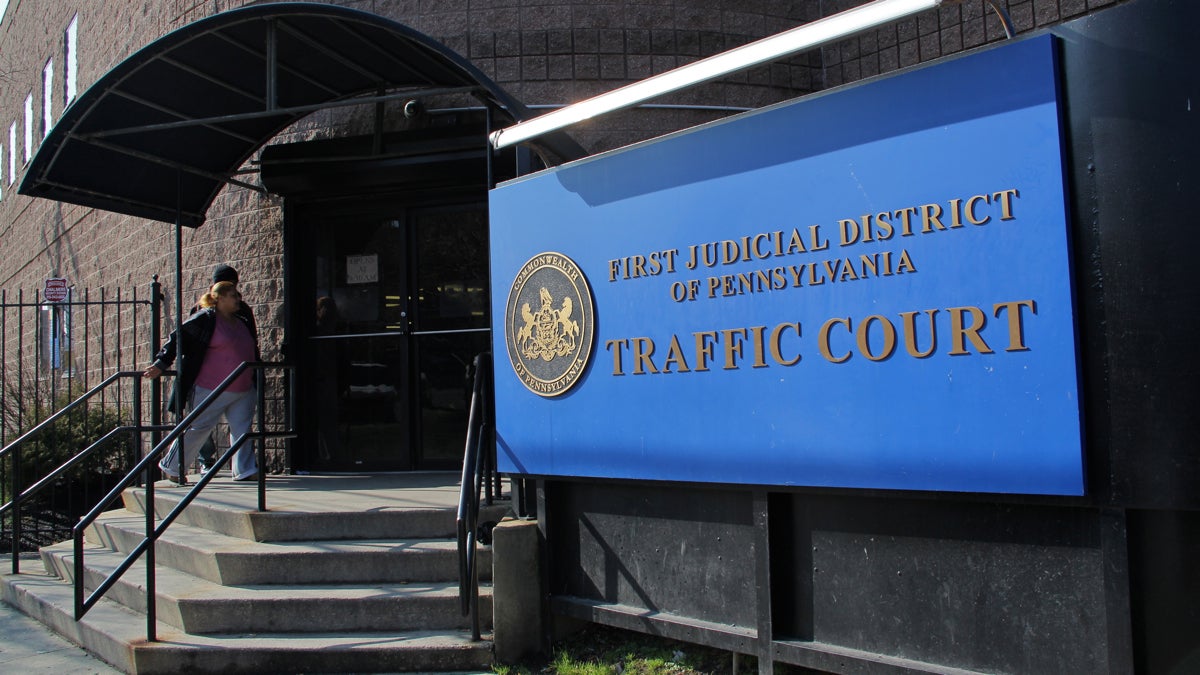Pa.-wide ballot question aims to end era of Philly Traffic Court corruption, once and for all

New charges have been filed against Philadelphia Traffic Court Judge Michael Sullivan. (NewsWorks file photo)
On Tuesday, Pennsylvania primary voters heading to the polls will be asked to put the final nail in the coffin of a long-corrupt and now-defunct organization, Philadelphia Traffic Court.
So, why should voters from Erie to Reading care about this regional court now?
It amounts to a formality, but Philadelphia’s Traffic Court is specifically named in Pennsylvania’s Constitution.
In 2013, the Pennsylvania Legislature passed a bill to shut down the court following a federal probe that brought down more than a half-dozen judges. But to keep it from rising, zombielike, from the grave, voters have to scrub it from the Constitution via the ballot question.
A 2013 bill, introduced by Republican state Sen. Dominic Pileggi and passed by the state House and Senate, has already transferred cases from the Traffic Court to Philadelphia’s Municipal Court.
Still, the ballot question is both “substantive and symbolic,” said Maida Milone, executive director of Pennsylvanians for Modern Courts.
“Substantive because once it’s abolished and removed from the Constitution, then it can’t be revived,” she said. “Symbolic because I think it really will give the citizens an opportunity to say no to favoritism and two tracks of justice.”
A federal court found some Philadelphia Traffic Court judges guilty of ticket-fixing in return for gifts, others of perjury.
Newspapers across Pennsylvania, including the editorial board at The Philadelphia Inquirer, have endorsed passing the ballot resolution.
“Shall the Pennsylvania Constitution be amended to abolish the Philadelphia Traffic Court?”
Statement from the Pennsylvania Office of Attorney General:
“The purpose of the ballot question is to amend the Pennsylvania Constitution to abolish the Traffic Court in the City of Philadelphia. Presently, the Pennsylvania Constitution provides for the Traffic Court in the City of Philadelphia as part of the unified judicial system. If the ballot question were to be approved, the Traffic Court in the City of Philadelphia would be abolished by removing all references to the Traffic Court and the judges of the Traffic Court in the City of Philadelphia from the Pennsylvania Constitution. Legislation enacted in 2013 transferred the functions performed by the Traffic Court to the Philadelphia Municipal Court. As a result, violations of the Vehicle Code previously adjudicated by the Traffic Court are presently being adjudicated by the Philadelphia Municipal Court. The proposed amendment would officially abolish the Traffic Court by removing all references to the Traffic Court and its judges from the Pennsylvania Constitution. This ballot question is limited to whether the Traffic Court in the City of Philadelphia should be abolished. The ballot question would not amend any other provisions of the Pennsylvania Constitution beyond the removal of all references to the Traffic Court and its judges. The effect of the ballot question would be to abolish the Traffic Court in the City of Philadelphia. As discussed above, legislation enacted in 2013 transferred the functions of the Traffic Court to the Philadelphia Municipal Court. This amendment would officially abolish the Traffic Court.”
WHYY is your source for fact-based, in-depth journalism and information. As a nonprofit organization, we rely on financial support from readers like you. Please give today.




